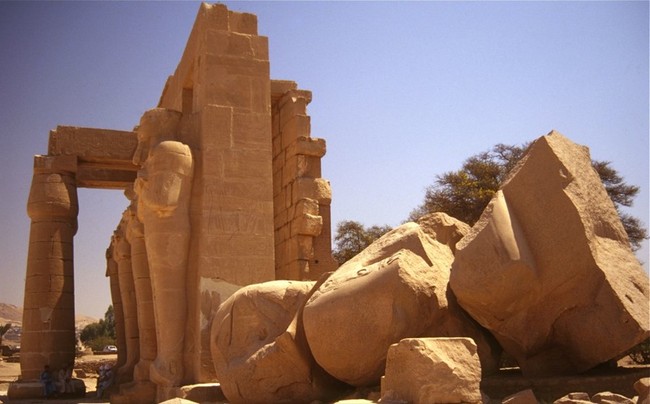
This morning’s Gospel reading is Luke 12:13–21:
Someone in the crowd said to Jesus, “Teacher, tell my brother to share the inheritance with me.” He replied to him, “Friend, who appointed me as your judge and arbitrator?” Then he said to the crowd, “Take care to guard against all greed, for though one may be rich, one’s life does not consist of possessions.”
Then he told them a parable. “There was a rich man whose land produced a bountiful harvest. He asked himself, ‘What shall I do, for I do not have space to store my harvest?’ And he said, ‘This is what I shall do: I shall tear down my barns and build larger ones. There I shall store all my grain and other goods and I shall say to myself, “Now as for you, you have so many good things stored up for many years, rest, eat, drink, be merry!”’ But God said to him, ‘You fool, this night your life will be demanded of you; and the things you have prepared, to whom will they belong?’ Thus will it be for all who store up treasure for themselves but are not rich in what matters to God.”
How many readers have read the poem “Ozymandias”? Percy Bysshe Shelley wrote this two centuries ago as a testament to the vanity of wealth and power, and to the fleeting fortunes of men in general. Given its nature, it may not be too surprising that it doesn’t come up too often in popular culture, although the film Watchman did reference it in a rather eclectic manner.
The poem references an Egyptian pharaoh better known to us as Ramesses II, also known as Ramesses the Great. He is most often cast as the antagonist pharaoh in the story of Moses, but it’s not clear exactly which pharaoh ruled at that time. In any case, his reknown has lasted through history, which makes him at once both a strange and fitting subject for Shelley’s poem. Shelley not only uses the more obscure Greek name for Ramesses II but also insinuates that he had not ever heard of this king. Shelley’s poem relates the tale of Ozymandias’ insignificance through the words of a “traveller from an antique land,” telling the tale of a lost and forgotten man whose vanity had turned to dust:
I met a traveller from an antique land,
Who said—“Two vast and trunkless legs of stone
Stand in the desert. . . . Near them, on the sand,
Half sunk a shattered visage lies, whose frown,
And wrinkled lip, and sneer of cold command,
Tell that its sculptor well those passions read
Which yet survive, stamped on these lifeless things,
The hand that mocked them, and the heart that fed;
And on the pedestal, these words appear:
My name is Ozymandias, King of Kings;
Look on my Works, ye Mighty, and despair!
Nothing beside remains. Round the decay
Of that colossal Wreck, boundless and bare
The lone and level sands stretch far away.”
Shelley’s use of punctuation in this poem drives home the point. Only three sentences end in any finality. The first is the obscure king’s boast, which is followed by a devastating and direct observation: Nothing beside remains. That is followed by a lengthier description of a destruction so complete that even the evidence of destruction has been utterly eliminated. The only remaining evidence of Ozymandias himself is his arrogant sculpture, his name, and his vain boast. Everything else has scattered to the wind.
Ramesses II’s rule is better remembered than Shelley’s poem suggests, of course and some of its artifacts survive to this day. However, Ramesses II’s dynasty died off long ago, as did his kingdom and all of its influence on world affairs. Ramesses II is an interesting footnote in history among many others, and his power and works dissipated millennia ago. To the extent that his works and words remain, they are a testament to vanity.
Our first reading warns precisely about that very issue. In Ecclesiastes, Qoheleth castigates the impulse to accumulate wealth beyond one’s needs for the purpose of passing it to another as a vanity of power:
Here is one who has labored with wisdom and knowledge and skill, and yet to another who has not labored over it, he must leave property. This also is vanity and a great misfortune. For what profit comes to man from all the toil and anxiety of heart with which he has labored under the sun? All his days sorrow and grief are his occupation; even at night his mind is not at rest. This also is vanity.
In other words, this vanity does not only appear among kings. The impulse to erect monuments — either literal, as in “Ozymandias” or in forms of eternal wealth — afflicts all men and women. At its heart, the vanity comes from the presumption that we can exist as eternal beings in this world and life, shaping the world long after we have left it not through love or wisdom but by power and the manipulation of the material.
This arrogance usurps the Lord’s divine nature. In our Gospel parable today, Jesus extends that arrogance to the presumption of control even within our own lifetimes. The wealthy man wants to expand his empire so that he may hoard even more of his production as a guarantee of long life. The Lord rebukes the wealthy man for his arrogance and his greed in hoarding wealth, reminding him that material acquisitions do not guarantee anything about the future.
Does this mean we shouldn’t plan on retirement? Expand businesses? Draft wills for our estate? Of course not. Those are legitimate parts of living in this world. What this parable teaches, though, is that we should not put our trust and faith in material possessions. Our faith should be in the Lord, not massive monuments nor material manipulations of estates and wealth. Those are false paths to eternal life, based on the vain notion that what matters will be whether future generations will do our bidding, or even remember us at all.
The true path to eternal life, Jesus reminds us, consists of following the Lord’s Word and loving Him more than anything else. We cannot replace that with wealth and power that turns to dust, nor can we extend our lives by hoarding our sustenance. Even the wealthy man’s reserves are a lie; how long would a harvest last while stored, even if in bigger barns? Likewise, Shelley’s Ozymandias fell into obscurity eventually; our estates will turn to dust as well, probably a lot more quickly than Ramesses II’s.
In his letter to the Colossians, Paul reminds the church of what eternal life requires, and how we can prepare ourselves for its grace. And it involves dying to all of the impulses to which Ozymandias and the wealthy man of the parable indulged:
Put to death, then, the parts of you that are earthly: immorality, impurity, passion, evil desire, and the greed that is idolatry. Stop lying to one another, since you have taken off the old self with its practices and have put on the new self, which is being renewed, for knowledge, in the image of its creator. Here there is not Greek and Jew, circumcision and uncircumcision, barbarian, Scythian, slave, free; but Christ is all and in all.
At the heart of both Ozymandias and the wealthy man is the same fear: the fear of death and the end of the self. In a way, Paul is calling for a death of self too, but only in the sense of self-love. That is why Quheleth laments that “all things are vanity,” because we wrap ourselves so much in self-love that we become trapped in sin. When we put all of these aspects of our fallen lives to death, it allows us to be born anew as children of God, as ourselves but as we were called to be all along. When we put the sinful parts of our nature to death, we become more ourselves than we have ever known, and more able to enter into the true eternal life of the Trinity.
To do otherwise is to scatter ourselves to the wind, and to trade our eternity for oblivion. Only by putting our vanity aside can we see the true path to the Lord and His love for us.
Previous reflections on these readings:
The front page image is the ruins of the Ozymandias Colossus located in Luxor, Egypt. Photo by Charlie Phillips and used via Wikimedia Commons.
“Sunday Reflection” is a regular feature that looks at the specific readings used in today’s Mass in Catholic parishes around the world. The reflection represents only my own point of view, intended to help prepare myself for the Lord’s day and perhaps spark a meaningful discussion. Previous Sunday Reflections from the main page can be found here.







